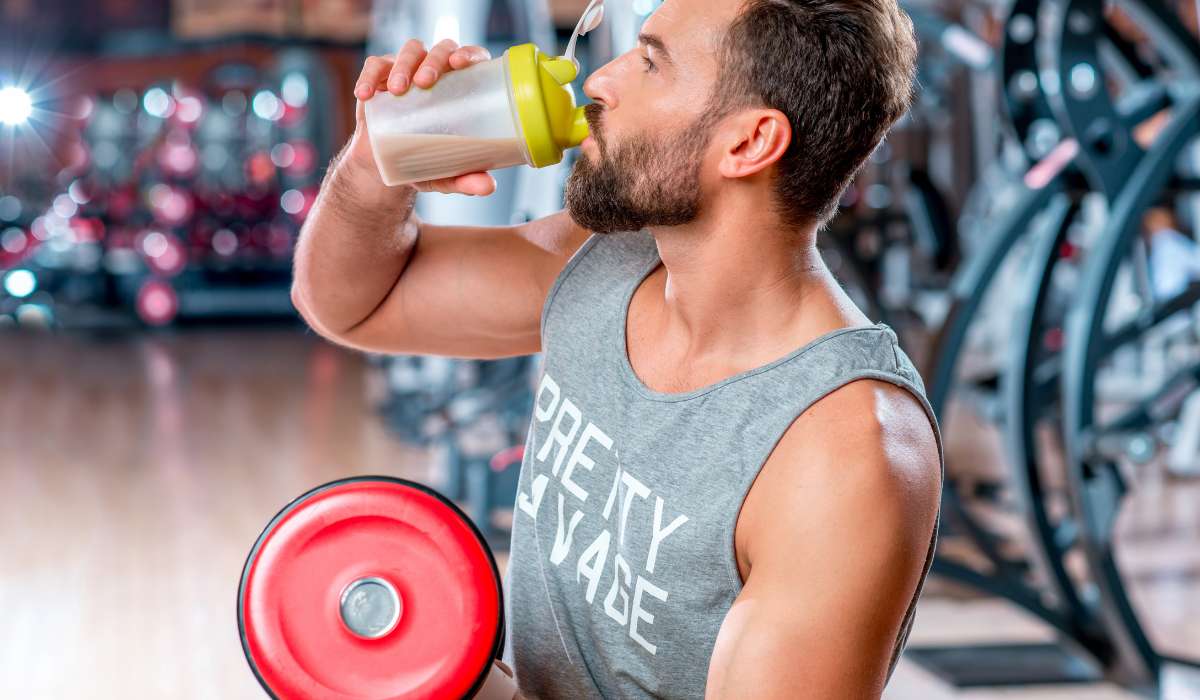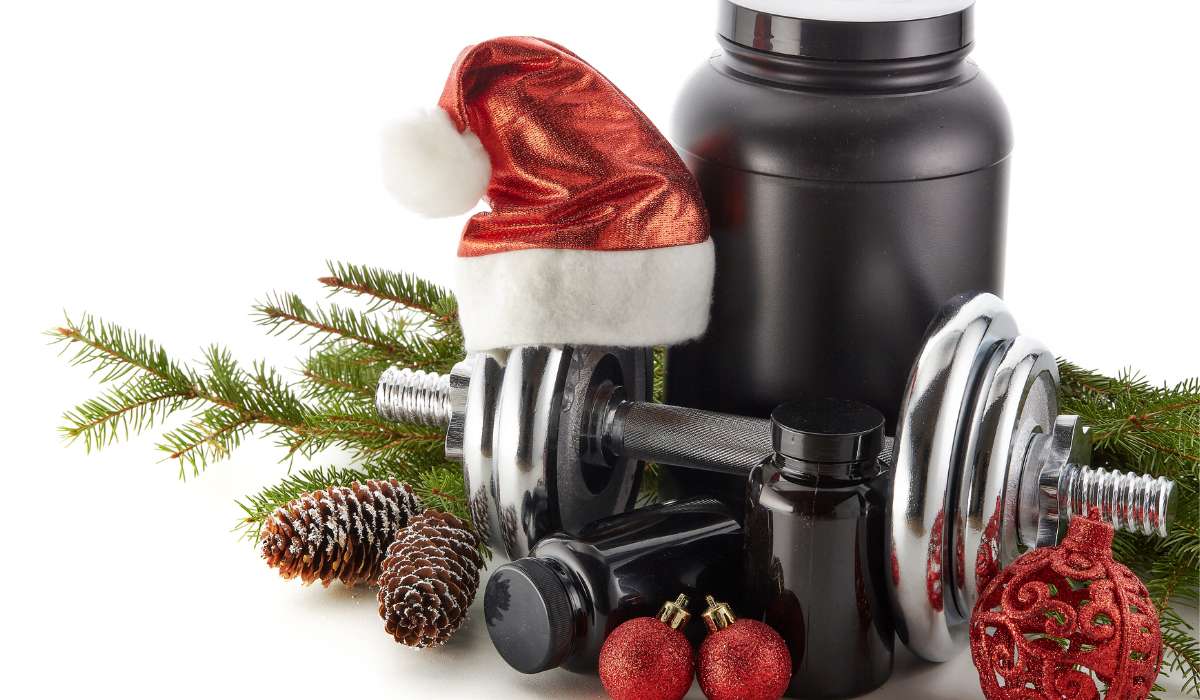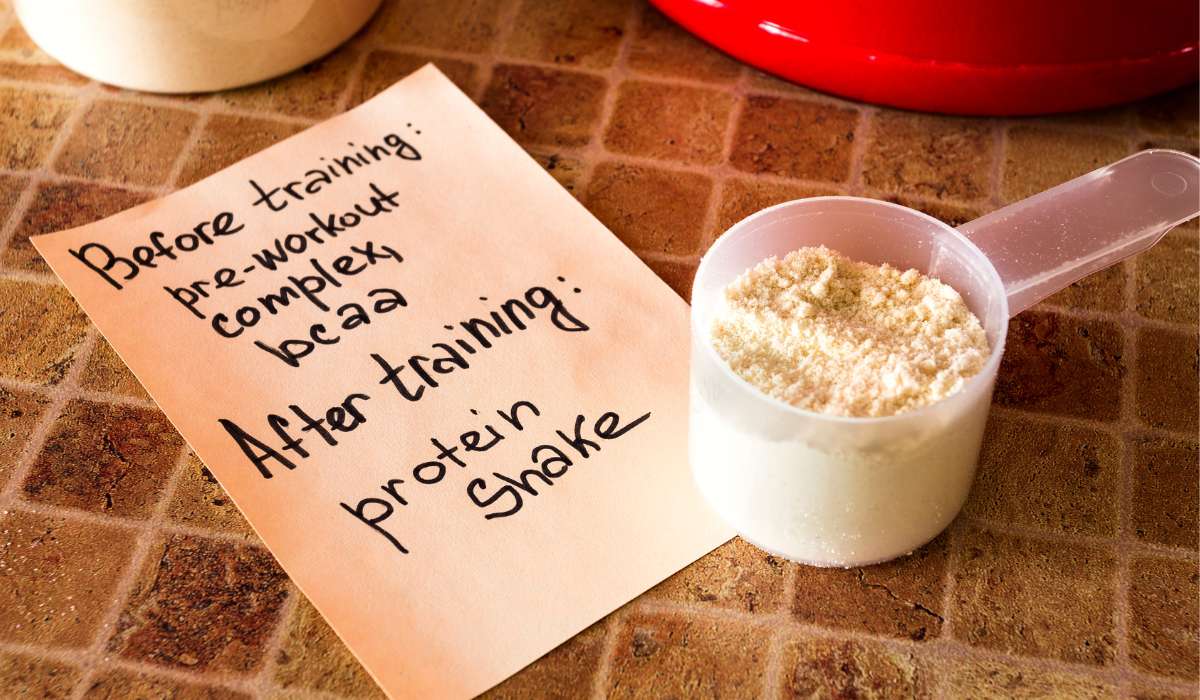Last Updated on 5 November 2024 by Brisbane Livewell Clinic
Protein is a key macronutrient, well known particularly in the sports nutrition world. But what is it? Protein is made from building blocks amino acids, and is an integral part of increase and growth of muscle cells as well as the maintenance of muscle. Protein is consumed within the diet and digested in the gastrointestinal tract to be used for a variety of processes within the body. Within sports nutrition and athlete’s aiming to increase lean muscle mass or improve strength training outcomes ensuring adequate protein without overdoing it is essential for optimising results.
How much protein do I need?

Amongst recent data, most reliably a 2018 study suggests that when combined with resistance exercise daily protein intake should sit around 1.6kg per kilogram of bodyweight per day with the upper limit to the protein intake sitting at 2.2kg of protein and not exceeding these recommendations when lean muscle mass is the goal. This protein intake is recommended to be spaced 3-5 hours apart to optimise MPS rates across the day, (2) as extended periods of positive protein balance maintained throughout the day creates a environment where the muscle fibre creates more contractile protein mass and thus leading to increases the fibre size. (3) Further to this if any goals of weight loss are at the forefront of your mind alongside gaining muscle, the promotion of lean body mass retention requires a higher intake of 2.3-3.1kg of protein per kilogram of weight per day.
Yes, you can overdo it!
Medically, adverse effects that can occur due to overuse of protein for long-term periods within the diet can include: renal function disorders, increased cancer risk, progression of coronary eatery disease and impaired liver function. A 2016 review found no detrimental effects of a high protein intake over a 12 month study with the upper intake being 3.32g of protein per kilogram of bodyweight, anything over this recommendation is considered too high and can have detrimental effects to health and training outcomes (1). Research has observed higher protein doses of 40g of protein per meal resulted in poorer stimulation of muscle protein synthesis (MPS) which is responsible for muscle growt both at rest and post-resistance exercise, showing no biochemical states where the body is more accepting of excessive protein intake.
Should you use a Protein Powder?

Protein powders are everywhere, and they can absolutely support those who are struggling to reach protein targets in amongst work/life balance or when you are time poor. The type of protein powder is a big debate on which is best, this can come down to ethical choices, what sits best in terms of digestion and what your long-term goals actually are as to if you choose a plant-based of whey based protein powder. It has been noted that vegetal sources of protein are not as effective on stimulating MPS as animal sources due to the less comprehensive profile of amino acids and less digestibility. A comparative study of whey protein showed whey protein as the only protein type within the study to sustain higher rates of MPS after exercise, showing that if muscle mass gain is your primary goal then post workout this would be the ideal source.
Protein Powder types available:
- Whey Protein
- Collagen Protein
- Rice Protein
- Pea Protein
- Egg White Protein
- Nut Based Protein
Recommendations to Optimise Protein Intake for Sports Nutrition

The ideal spacing out of protein intake across the day to every 3 hours would roughly place 6 small meals per containing 25g of protein. Additionally pre-sleep protein ingestion has been suggested to offset the decline of muscle protein synthesis that occurs during a fasting period as happens while sleeping.
An example meal plan of what 150g of animal-based protein intake can look like spread evenly across the day:
| Time | Meal | Food Source | Protein Content (g) |
| 6am | Breakfast | 3 Eggs + 1/4 cup cheese + Spinach and Mushrooms + 2 slices of Sourdough Bread | 26g |
| 9am | Post-Training Snack | 31g of Whey Protein mixed in water | 24g |
| 12pm | Lunch | 80g Chicken Breast + 40g Pine Nuts + Roasted Pumpkin + 1/2 cup Cooked Basmati Rice | 25g |
| 3pm | Snack | 95g Tin of Tuna + 30g Red Kidney Beans on 3 Rice Cakes | 25g |
| 6pm | Dinner | 150g Wild Caught Salmon + Couscous + Broccoli + Seasoning | 35g |
| 8pm* | Snack | 1/2 cup Cottage Cheese and Berries | 15g |
| Last snack to be ingested 1-3 hours prior to sleep. | Total = 150g | ||
As it stands with the information available in 2023 a protein intake sitting between 2.3-3.1kg of animal based protein per kilogram of weight remains the gold standard for optimising muscle growth and strength gains when timed correctly. Our naturopaths and nutritionists at Brisbane Livewell Clinic can hep to support your protein intake alongside your sport and training goals to help you reach them faster while supported with adequate and tailored nutrition. They can provide individualised meal plans and work out your personal tailored goals of protein, carbohydrate and fat intake where required.
We have these Wellness Blogs that may interest you. Click HERE or HERE or HERE
Your Practitioner may recommend THIS supplement.
You may enjoy THIS Wellness Recipe
Our Amazing Naturopaths at Brisbane Livewell Clinic
Shella Hall (Sunshine Coast and online)
Amy Angus (Wavell Heights and online)
Jen Strachan (Cannon Hill and online)
Nicole Odlum (Wavell Heights and online)
Dominique Johanson (Wavell Heights and online)
Locations We Service – Naturopathy
Naturopath Caloundra
Naturopath Wavell Heights
Naturopath Cannon Hill
Naturopath Sunshine Coast
Naturopath Brisbane Northside
Naturopath Brisbane
Naturopaths Brisbane
Brisbane Naturopaths
Naturopathy Brisbane
Best Naturopaths Near Me
Best Naturopath Near Me
Relevant Naturopath links
Why You May Wish to Consult a Naturopath
Gut Health
- Gut Health
- Solving Gut Issues by Treating SIBO
- Daily Ritual Gut Health
- 6 Digestive Problems that Cause Weight Gain
- How Stool Testing Helps IBS Sufferers Part 1: Digestive Markers
- How Stool Testing Helps IBS Sufferers Part 2: Microbial Markers
- Gut Health with Parasite Cleanse
- Natural Parasite Cleanse Australia
- The Gut-Brain Connection to Mental Health
- The Gut-Brain Connection: How to Feed Your Brain
- Controlling Constipation and Bloating
- How Stool Testing Helps Find the Causes of IBS and Other Digestive Health Problems
- Gut Health Brisbane
- Gut Health Specialist Brisbane
Hormone Health and Thyroid Issues
- Hormonal Health and Thyroid Issues
- PCOS and the Insulin Connection
- Identifying Insulin Resistance
- Looking at Luteal Phase Deficiency
- Experiencing Painful Periods? Here’s What Might Be Causing It
- When You Suspect You Have Thyroid Issues
- Subclinical Hypothyroidism: When You Suspect You Have a Thyroid Issue
- Thyroid Disorders from a Naturopathic Aspect
- Thyroid Health for the Winter Months
- Thyroid Disease: A Brief Guide to Common Disorders
- Naturopathic Thyroid Specialist Near Me
- Hyperthyroidism
- Hypothyroidism and Hashimoto’s
- Thyroid
- Hyperthyroidism and Graves’ Disease
Detox and Cleansing
- Heavy Metal Toxicity: Strategies for Detoxing
- Detoxing Your Lifestyle, Not Just Your Body
- Naturopathic Detox Cleanse
- Naturopath Detox
- Do I Need a Heavy Metal Detox?
- Heavy Metal Detox Australia
Insomnia and Sleep Health
- Save Your Sleep with What You Eat
- Insomnia Linked to Mineral Deficiency
- Solving Insomnia: Naturopathy’s Five-Step Solution
- 5 Ways Insomnia Can Affect Your Life and What You Can Do About It
- Natural Treatment for Insomnia
- Naturopathic Remedies for Insomnia
Autoimmune Conditions
Mental Health
- The Gut-Brain Connection to Mental Health
- The Gut-Brain Connection: How to Feed Your Brain
- Treating Depression with Naturopathy: What You Should Consider
- A Naturopath’s Guide to Improving Mental Health
- Naturopathic Anxiety Medication
- Naturopath Anxiety
- Obsessive Compulsive Disorder (OCD): How a Naturopath Helps
Women’s Health
- Women’s Health
- Hormonal Imbalance
- Naturopath Women’s Health
- Women’s Health Week: It’s All About Women’s Wellness and Wellbeing
- Treating Vaginal Thrush the Natural Way
- The Lowdown on Low Libido
- Regulating Menstrual Cycles with Chaste Tree
- Painful Periods and Naturopathy
- Preventing Post-Pill Acne
Fertility and Pregnancy
- Pregnancy
- Pre-Pregnancy Fertility Care with Naturopathic Nutrition
- Fertility Naturopath Brisbane
- Acupuncture and Naturopathy for Pre-Conception Care
- Pregnancy Care and Naturopathy
- Maximising Nutrition Before and During Pregnancy
- Getting Quality Sleep in the 3rd Trimester of Pregnancy
- Pregnancy Wellbeing and Naturopathy are Great Partners
- Naturopathy for the Management of Constipation During Pregnancy
- Prenatal Naturopath
- Postpartum Depression and Anxiety
- Keeping Calm About Colic
Men’s Health
- Men’s Health
- The Sperm Health Decline
- Better Prostate Health with Natural Medicine
- Naturopathy and Men’s Health
- Support Your Thyroid Health Naturally
DNA Testing
- DNA Testing & Personalised Medicine
- DNA Testing Brisbane
- DNA Testing Brisbane, Australia
- Methylation Test Near Me
- Testing Functional Medicine
- Genetic Methylation Test Brisbane
- DUTCH Test Providers Near Me
Leaky Gut Syndrome
Food Intolerances and Allergies
- 7 Useful Strategies for Overcoming Food Intolerance
- Hayfever and the Gastrointestinal Immune System
- Food Intolerance, Hypersensitivity, and Allergies Explained
- Everything You Need to Know About Food Intolerance
- Food Allergy Testing Near Me
- Food Intolerance Testing Brisbane
- Food Allergy Testing
- Food Intolerance Testing
- Food Intolerance Testing Package
Weight Loss
- Naturopathy for Weight Loss
- Natural Weight Loss for Summer
- A Naturopathic Approach to Achieving an Ideal and Healthy Weight
- Intermittent Fasting: A Naturopath’s Guide to Success
- Weight Loss Naturopath
- Kick-Start Weight Loss: 5 Science-Backed Tips
- Combining Therapies for a Healthy Weight
- Naturopath’s Weight Loss Programme
Nutrition and Mineral Deficiencies
- Nutrition and Naturopathy: Healthy Diet
- Optimising Nutrition for Skin Health
- The Seriousness of Sugar
- The Importance of Mindfulness and Meditation in Natural Medicine
- Nutrition Deficiency: Visible Body Look Signs
- Helping Cardiovascular Disease in Women
- Sports Nutrition and Your Ideal Protein Requirements
- Creating a Healthy Diet for Good Health and Wellbeing
- Maximising Nutrition Before and During Pregnancy
- Nutrition and Naturopathy: Healthy Diet
- Combining Therapies for a Healthy Weight
- Intermittent Fasting: A Naturopath’s Guide to Success
- Iron Deficiency and Anaemia: When Things Go from Bad to Worse
- Naturopathic Medicine: What You Need to Know
- National Herbal Medicine Week
- The Role of Nutrition and Naturopathy in Wellbeing
Parasites
- Natural Parasite Cleanse Australia
- Parasites from Traveling
- Natural Treatments for Those Pesky Parasites
- Clean Your Body of Parasites
- Parasite Cleanse
External References
Naturopathic Care for Anxiety: A Randomised Controlled Trial PLOS ONE
Global Naturopathy Research as Reflected by Scopus (2000–2019) – Emerald Insight
Selenium and Naturopathic Treatment of Hashimoto’s Disease – PubMed
Global Strategy for Traditional and Complementary Medicine – World Health Organization (WHO)
Naturopathy for Mental Health: Approaches to Anxiety and Depression – Journal of Integrative Medicine
Naturopathic Research Resources – World Naturopathic Federation
World Naturopathic Federation – Naturopathic Research Resources
BMC Complementary Medicine and Therapies – Overview of International Naturopathic Practice and Patient Characteristics
National Center for Biotechnology Information (NCBI) – Evidence-Based Naturopathy for Chronic Disease Management
Journal of Alternative and Complementary Medicine – Naturopathic Research Capacity in Clinical Practice
PubMed – Clinical Evidence for Selenium and Naturopathic Treatment of Hashimoto’s Disease
World Health Organization (WHO) – Traditional and Complementary Medicine Strategy
Journal of Integrative Medicine – Naturopathic Approaches to Anxiety and Depression
National University of Health Sciences – Resources for Naturopathic Research
Cambridge Media Journals – Naturopathy in Clinical Practice Guidelines
The American Journal of Medicine – The Integration of Naturopathy in Chronic Disease Management
External Resources
– National Center for Complementary and Integrative Health (NCCIH)
– Australian Government: Department of Health
– World Health Organization (WHO) – Traditional Medicine
– National Institutes of Health (NIH) – MedlinePlus: Complementary and Integrative Medicine
– Australian Research Centre in Complementary and Integrative Medicine (ARCCIM)
– British Medical Journal (BMJ) Complementary Medicine
– Australian Traditional-Medicine Society (ATMS)
– University of Sydney – Complementary Medicine Research
– Australian College of Natural Medicine
– Natural and Traditional Medicine Program at the Australian National University








